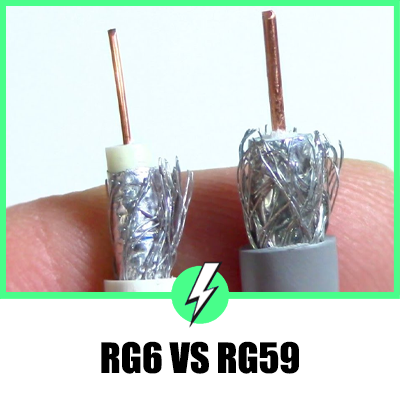Do You Need Chemistry for an Electrician? A Comprehensive Guide
The world of electrical engineering is vast and complex, with various fields and specialisations.
One question that often arises for those considering a career in this field is, “Do you need chemistry for an electrician?”
This article aims to answer this question and provide a comprehensive understanding of the role of chemistry in electrical engineering.

Contents
Do Electricians Use Chemistry?
In the day-to-day work of an electrician, the use of chemistry is not typically a primary concern.
Electricians primarily deal with the practical application of electrical principles, such as installing, maintaining, and repairing electrical systems.
However, a basic understanding of chemistry can be beneficial in understanding certain aspects of electrical work.
For example, understanding the chemical properties of different materials can help an electrician choose the right type of wire or insulation for a particular job.
Do You Need to Learn Chemistry for Electrical Engineering?
While the role of an electrician may not heavily involve chemistry, the field of electrical engineering can be a different story.
Electrical engineering is a broad field that includes areas such as electronics, power systems, control systems, and telecommunications.
In some of these areas, knowledge of chemistry can be quite beneficial.
For instance, in electronics, understanding the properties of semiconductors at a chemical level can be crucial.
Semiconductors are the foundation of modern electronic devices, and their behaviour is heavily influenced by their chemical composition and structure.
Therefore, a course in materials science, which includes aspects of chemistry, is often a part of electrical engineering curriculums.
How Much Chemistry Do You Need for Electrical Engineering?
The amount of chemistry required in electrical engineering can vary depending on the specific area of focus.
For example, if you’re interested in power systems or control systems, you might not need as much chemistry.
However, if you’re leaning towards electronics or materials science, a stronger background in chemistry could be beneficial.
In most electrical engineering degree programs, students are required to take at least one or two courses in chemistry.
These courses provide a foundation in the basic principles of chemistry and how they apply to engineering problems.
Is There Chemistry in Electronics?
Yes, there is a significant amount of chemistry involved in electronics.
The behaviour of semiconductors, which are the foundation of modern electronic devices, is heavily influenced by their chemical composition and structure.
Understanding these chemical properties is crucial for designing and manufacturing electronic devices.
Insights from Online Discussions
How Much Math, Physics, and Chemistry is Required for Electrical Engineering?
According to the discussion on Quora, the amount of chemistry required for electrical engineering is minimal compared to math and physics.
Most users agreed that while a basic understanding of chemistry is needed, it is not as heavily relied upon as math and physics.
However, some users pointed out that certain specialisations within electrical engineering, such as materials science or semiconductor physics, might require a more in-depth understanding of chemistry.
How Much Chemistry is Needed in Electrical Engineering?
The Reddit community echoed similar sentiments as the Quora discussion.
Most users agreed that the amount of chemistry required in electrical engineering is relatively minimal.
However, they also pointed out that having a basic understanding of chemistry can be beneficial, especially when dealing with semiconductors or materials science.
Is a Physics A-level Needed for Electrical Engineering?
In a discussion on The Student Room, a user asked whether a physics A-level is needed for electrical engineering.
The responses varied, with some stating that some universities require physics, while others do not.
However, the consensus was that a strong foundation in mathematics is more important for electrical engineering.
Queen Mary University of London: Electrical and Electronic Engineering Course Overview
The Electrical and Electronic Engineering course at Queen Mary University of London provides a comprehensive overview of the subject.
The course focuses on power generation, transmission, electrical machines, and the design of complex digital and analogue electronic systems.
While the course does not explicitly mention the requirement of chemistry, it does emphasise the importance of mathematics and physics.
GCSEs to Become an Electrician
When it comes to becoming an electrician in the UK, the educational requirements are quite specific.
According to the information provided by Go Construct, there are several routes to becoming an electrician.
You can gain the qualifications you need by completing a college course or an apprenticeship.
If you already have relevant experience, you could apply directly to an employer for a job.
Importantly, those who achieve competency through industry-recognised training routes, such as courses from City & Guilds or EAL and apprenticeships, tend to have better job and earnings prospects.
You should explore the options to find out which is the right one for you.
To become a fully qualified electrician, you will need to complete the AM2 assessment.
This is an industry-recognised competence which is usually the final unit of your electrical qualification.
You need normal colour vision to work with electrical wiring and will have to pass a colour vision assessment test.
You may need an Electrotechnical Certification Scheme (ECS) card to work on a construction site.
College/Training Provider
You can take a college course which may help you to find a trainee apprentice position with a company.
You could enrol on:
- City & Guilds Level 2 in Building Services (Electrical Installation route) or EAL Level 2 Intermediate Diploma in Electrical Installation
- City & Guilds Level 3 in Building Services (Electrical Installation route) or EAL Level 3 Advanced Diploma in Electrical Installation
- T Level in Building Services Engineering for Construction.
Apprenticeship
An apprenticeship with an electrical installation company is a good way into the industry.
Apprenticeships are open to anyone over the age of 16.
As an apprentice, you will be fully employed by your company and expected to work a minimum of 30 hours a week.
Your time will be split between on-the-job experience and a college or training provider.
You can do an installation and maintenance electrician advanced apprenticeship (Level 3).
You can also train to become an electrician through an apprenticeship in the armed forces.
Work Experience
Work experience is essential to gaining employment within the industry.
You could gain this at school, or by working weekends and holidays with a company or relative who works in electrical installation.
Potential employers will alwaysbe pleased to see work experience listed on your CV.
Candidates with relevant work experience can complete a Level 3 Electrotechnical Experienced Worker Qualification from the EAL.
Conclusion
In conclusion, while chemistry is not a specific requirement for becoming an electrician, a solid foundation in mathematics and physics is essential.
The ability to understand and apply scientific principles will certainly be beneficial in this career path.





